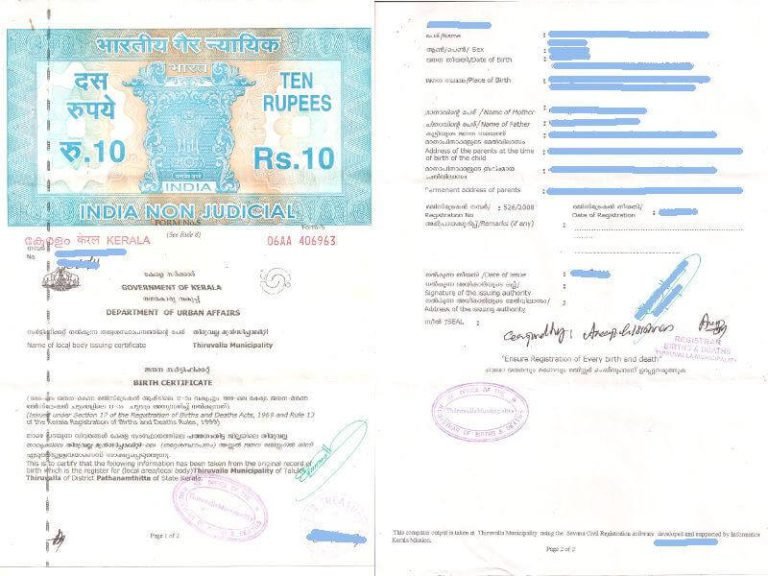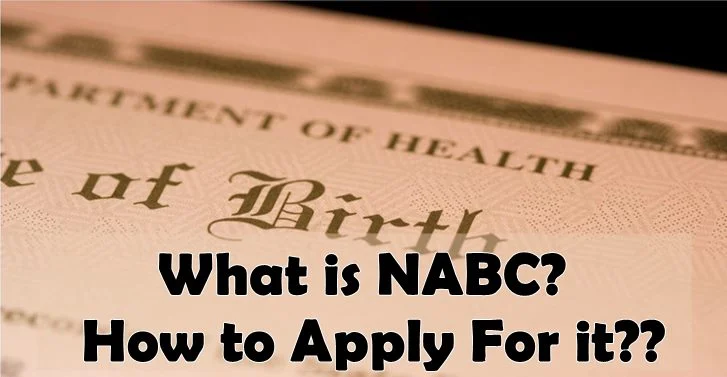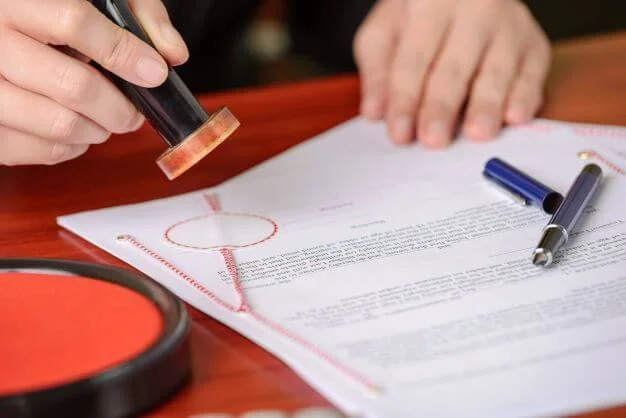Legal Heir Certificate
Apply Online for Legal Heir Certificate
In terms of law, a legal heir certificate and a surviving member certificate are equivalent. If a deceased person left no will, this certificate is required to transfer their assets to their legitimate heirs.
Easy Process and Documentation
Required Documents
- Aadhaar Card, Pan Card and 1-1 passport size photo of Surviving Members and deceased.
- Document for Date of birth proof of applicant and surviving members and to prove relation with deceased (Passport or Driving Licence or Birth Certificate or 10th pass certificate)
- Death certificate of deceased.
- Domicile Certificate of applicant (For Ghaziabad, Noida and Gurgaon Only)
- RWA Letter stating details of family members, duration of stay, type of residence and about the demise of a said person.
Cost and Timeframe
- When you send us your paperwork, our experienced staff will review your paperwork with local government officials to determine the service’s cost, feasibility, and completion date. After a quote has been given, it remains fixed. Location affects project duration and cost. Send us your documents and specific requirements to get a price and turnaround estimate.
- On an average Procurement takes four to six weeks.
2000+ locations Served
Happy Clients 50000+
Averge Google Rating 4.9
India's Most Trusted Legal Documentation Portal
Legal Heir Certificate– How to get Legal Heir Certificate
Legal Heir Certificate or Surviving member certificate
If a family member dies unexpectedly, a legal heir certificate must be acquired in order to transfer the deceased’s assets to their legal heir/s. A legal heir certificate is an essential document that establishes the deceased’s connection with their legal heir/s. Once the death certificate has been acquired from the municipality/corporation, the heirs may apply for this legal heir certificate to assert their claim to the dead person’s property and dues. Typically, attorneys assist in the preparation and registration of a legal heir certificate.
Uses of a Legal Heir Certificate
You’ll need a certificate of legal heirship because of the following:
- So that the demisee’s property and assets can be given to the people named as beneficiaries in the demise.
- The way an insurance company wants it.
- So that the pension for the family of the worker who died could be approved and taken care of.
- To get government benefits like pay, pension, and gratuity, you must:
- To ask a local, state, or federal government agency to pay the decedent’s unpaid wages.
- If you want to get a job through friendly recommendations, you must…
A legal heir certificate could help a buyer find out who the real owner of a piece of property is before making an offer or registering the property. There are times when more than one person can claim to own a family estate. All heirs should sign the deed of conveyance to show that they agree with the transfer and to avoid legal problems.
Who Is Eligible to Submit an Application for a Legal Heir Certificate?
According to Indian law, the following individuals are recognised as legal heirs and are eligible to make a claim for a legal heir certificate:
spouse of the person who passed away.
The dead person’s children (whether a son or daughter).
Parents of the person who passed away.
DIRECTIONS FOR APPLYING FOR A CERTIFICATE OF LEGAL HEIRSHIP
You may get a certificate of inheritance that is recognised legally by the district or Taluk Thsildhar, as well as the necessary local firm or municipal office, as well as the local civil court, if you apply for it. This certificate is only provided in response to a valid request, and it contains a list of the names of all legal heirs to the estate of the dead person. The following is the process that must be followed in order to receive a certificate of legal inheritance:
- A legal inheritor certificate indicates the lawful successor, who is then able to proclaim the property or residences that belonged to the individual who has passed away. These certificates, which place a claim on the property of the dead person, should be in the possession of all successors who are qualified to inherit it.
- It is essential that the application be accompanied by all of the necessary documentation, including a copy of the deceased person’s certificate of death. (The office of the municipality or corporation must be visited in order to get a death certificate.)
- Along with the application, you will need to provide either an affidavit on official stamp paper or a self-declaration.
- An inspection is carried out, and the investigation is finished, by the tax inspector/administrative officer.
- After the investigation has been carried out and found to be satisfactory, the authorised authority will issue the Legal heir certificate.
In most cases, the procedure for acquiring a certificate of legal heirship takes around a month to complete. You need to speak with the Revenue Division Officer (RDO) or the sub-collector if there is an undue delay in acquiring this certificate or if the appropriate authorities fail to react.
Documents Required For Obtaining a Legal Heir Certificate
The following is a list of papers that are necessary in order to receive a certificate of legal heirhood:
- application form that has been signed.
- Proof of the applicant’s identity and address is required.
- A copy of the dead person’s death certificate.
- Dates of birth must be provided as verification for all legitimate heirs.
- A self-undertaking affidavit.
- Documentation proving the dead person’s address.
Note:
The applicant’s evidence of identity might take the form of a voter’s ID, an Aadhaar Card, a driving licence, a passport, or any other government-issued identification card.
Any legitimate form of identification, a telephone or mobile phone bill, a gas bill, or a bank passbook that includes the legal heir’s name and address may serve as evidence of address for the legal heir.
Documents such as birth certificates, school transfer or departure certificates, PAN cards, passports, and others might serve as evidence of a legal heir’s date of birth.
WHAT IS THE DIFFERENCE BETWEEN A CERTIFICATE OF SUCCESSION AND A LEGAL HEIR CERTIFICATE?
If the dead individual worked for the government in any capacity, the legal heir certificate must be produced in order to get permission for a family pension or appointments on grounds related to the concern. In order to facilitate the transfer of property, including movable and immovable assets, a legal heir certificate is issued.
- According to the different Property Laws in the nation, an individual who inherits any kind of property, whether it be moveable or immovable, is obliged to get a succession certificate. The Hindu Succession Act covers the majority of these concerns and questions. Although a few of them are within the jurisdiction of the communal statutes or the Indian Succession Act. For each of these groups, it is necessary to have a complete understanding of the issues at hand.
- The Tahsildar of the district provides succession certificates to the legal heirs of a dead person, whereas the court issues legal heir certificates to identify the live heirs of a certain deceased person.
- A fee equal to 3% of the overall worth of the property will be required to get the succession certificate. It will cost you Rs. 2 for a stamp and Rs. 20 for stamp paper in order to have a legal heir certificate issued. The affidavit will also cost Rs.
- There is a significant difference between a legal heir certificate and a succession certificate. In the event that the head of the family or another member of the family dies away, the next direct legal heir of the dead person, such as the deceased person’s wife, husband, son, daughter, or mother, is eligible to submit an application for the Succession Certificate. With this certificate, it is possible to transfer an energy connection, a telephone connection or patta, a home tax account, a bank account, and the ability to file tax returns, among other things.
How Do I Include a Legal Heir in My ITR Filings?
In the event that a proprietor passes away, their legal heirs are obligated to submit an ITR and pay the owner’s final income tax liability. The following is a list of the actions that need to be taken:
- Proceed to the online filing platform for your income taxes.
- If you are a registered user, you will need to log in using the information associated with your account. If you do not already have an account, you may create one by selecting the “Register Yourself” option. Carry out the remaining steps of the registration process by supplying all of the necessary information.
- After you have successfully registered as a representative and logged in, go to the “My Account” page.
- Choose a new request from the list that appears in the box to the right of the request type choice.
- In the area labelled add/register as a representative for another person, there is a drop-down box that you should use to choose the option register yourself from.
- In the area under “Category to Register,” use the drop-down menu to choose “Estate of Deceased Person.”
- If you choose the continue option, you will be sent to a page that is hosted on another website.
- Please provide all of the pertinent information, including the Social Security number (SSN) of the dead, the name of the estate, and the date the deceased was incorporated.
- Create a zipped file that contains the required documentation, which may include a copy of the legal heir’s PAN card that has been self-attested, a copy of the dead person’s PAN card, a copy of the legal heir certificate, or an affidavit that has been signed in the presence of a Notary Public.
- After you have finished uploading your documents, go ahead and click the “submit” button so that your request may be sent to the e-Filing Administrator.
Frequently Asked Questions
The process of obtaining a certificate of legal heirship might take anywhere from 15 to 30 days.
Yes. Since 2005, when the Hindu Succession Act was revised, both married and unmarried girls are now considered legal heirs and have the same rights that a son has. This was made possible by the change. As a result, a dead person’s legally married daughters are their legal successors.
Check that you have a copy of the person’s death certificate. You need to go to the authority that originally issued the certificate, supply them with the information of the dead, and the date that the legal heir certificate was granted, and they will provide you with a duplicate certificate. There will be a minimum charge that must be paid.
Yes. Children who are born to a man and a woman who are not married to each other or who were born outside of marriage are considered to be illegitimate. Illegitimate children, on the other hand, have the right to inherit all of their parent’s property rights and are thus considered legal heirs of the person who has passed away.













